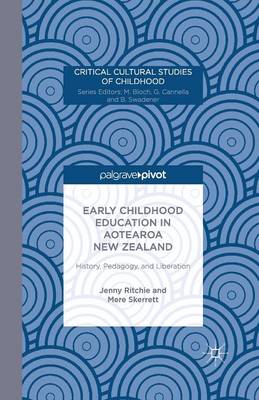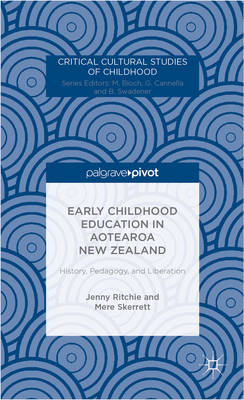Critical Cultural Studies of Childhood
2 total works
Early Childhood Education in Aotearoa New Zealand: History, Pedagogy, and Liberation
by J. Ritchie and Mere Skerrett
Published 9 December 2013
Taking as a starting point the work of Aotearoa New Zealand to provide an education system that includes curriculum, pedagogy, and language from indigenous Maori culture, this book investigates the ensuing practices, policies, and dilemmas that have arisen and provides a wealth of data on how truly culturally inclusive...Read more
Taking as a starting point the work of Aotearoa New Zealand to provide an education system that includes curriculum, pedagogy, and language from indigenous Maori culture, this book investigates the ensuing practices, policies, and dilemmas that have arisen and provides a wealth of data on how truly culturally inclusive education might look.
Early Childhood Education in Aotearoa New Zealand
by J. Ritchie and M. Skerrett
Published 1 January 2013
Since 1996 Aotearoa New Zealand has had a national early childhood curriculum, Te Whariki, which validates the language and culture of the Indigenous Maori. This book provides two lenses into the history of early childhood care and education in Aotearoa, with a particular focus on Maori children and their...Read more
Since 1996 Aotearoa New Zealand has had a national early childhood curriculum, Te Whariki, which validates the language and culture of the Indigenous Maori. This book provides two lenses into the history of early childhood care and education in Aotearoa, with a particular focus on Maori children and their families, In elucidating the specific context of early childhood care and education in Aotearoa, with a particular emphasis on the ways in which the recent policy context has operated in an attempt to effect inclusion or exclusion of Maori epistemologies and pedagogies within both Maori initiatives such as Te Kohanga Reo (a Maori immersion whanau/family development movement), as well as 'whitestream' institutions, this book offers insight into struggles to provide culturally equitable provision to Indigenous young children.

